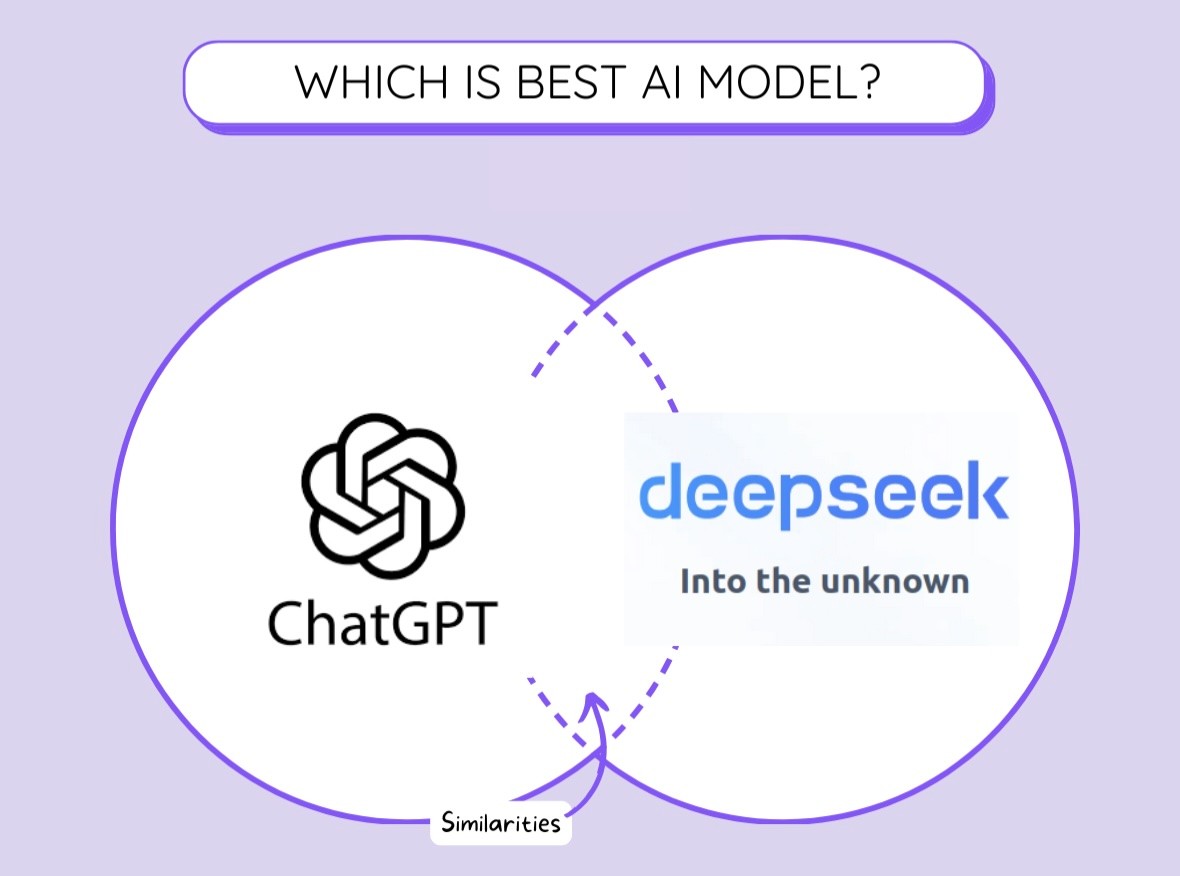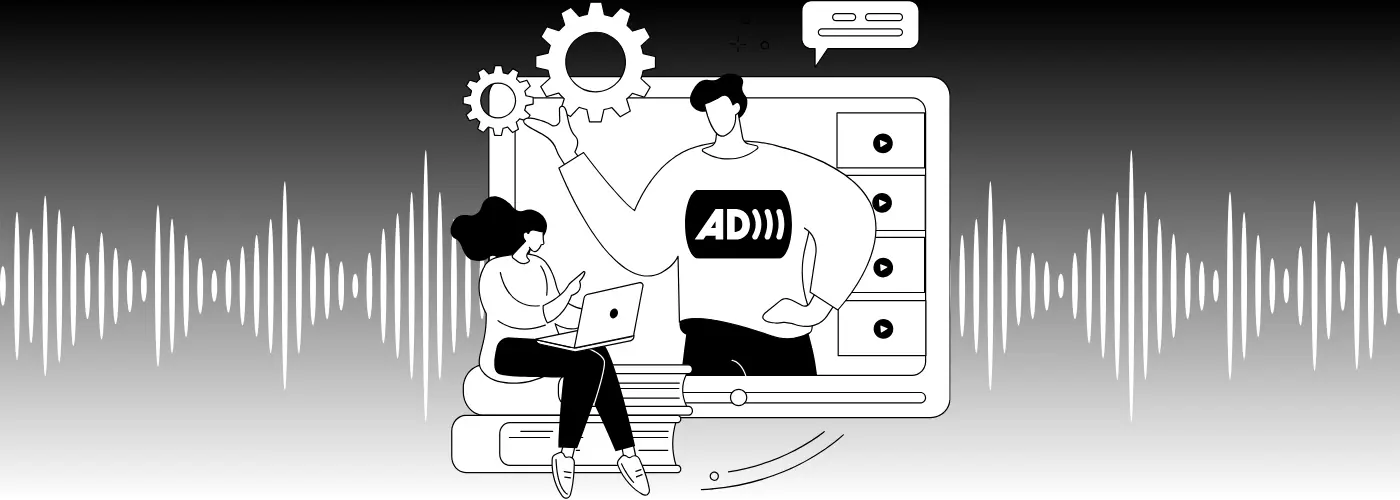DeepSeek and ChatGPT are two prominent AI chatbots that have emerged as leaders in the artificial intelligence space. Both models are designed to engage in human-like conversations and perform various tasks, but they differ significantly in their architecture, performance, cost, and ideal use cases. This article provides a detailed comparison of these two AI titans, highlighting their strengths, weaknesses, and best applications.
Overview of DeepSeek and ChatGPT
DeepSeek is a rapidly emerging AI company based in China that has gained recognition for its open-source AI models, particularly the DeepSeek. It excels in technical tasks, offering faster response times and lower costs. DeepSeek is designed for natural language processing tasks, and it can process multiple data types, including images and sounds.
ChatGPT developed by OpenAI, is a versatile AI chatbot designed to generate a wide range of text outputs, such as articles, essays, and code. It is known for its conversational abilities and creative capabilities. ChatGPT operates using a large language model built on neural networks and has been trained on extensive datasets from the internet.
Architectural Differences
DeepSeek: Employs a Mixture-of-Experts (MoE) architecture, activating only a subset of its 671 billion parameters for each request. This approach allows for efficient processing while maintaining high performance, particularly in technical tasks. It uses reinforcement learning techniques that enable the model to learn from its interactions and improve over time.
ChatGPT: Uses a more traditional transformer architecture, which processes all parameters simultaneously. This makes it versatile but potentially less efficient for specific tasks. It also employs reinforcement learning from human feedback to improve its responses.
Performance and Capabilities

Cost Comparison
DeepSeek is significantly more cost-effective than ChatGPT, making it an attractive option for users and developers alike.
DeepSeek: Offers a subscription model starting at $0.50 per month. For developers using its API, the costs are even lower, charging approximately $0.14 per million input tokens and $0.28 per million output tokens. DeepSeek claims to operate at a cost that is 27 times cheaper per token compared to OpenAI's models. It also provides a completely free experience for users.
ChatGPT: Has a subscription starting at $20 per month for its premium features. While it does provide a free tier, users must pay to access advanced functionalities and ensure faster response times.

Pros and Cons
DeepSeek
Pros
Cost-Effective: Significantly cheaper subscription plans and API usage.
Technical Proficiency: Excels in coding, mathematical problem-solving, and logical reasoning.
Speed: Provides faster responses, particularly for programming-related queries.
Open Source: Allows users to run it locally, ensuring data privacy and customization.
Efficient Architecture: Uses a Mixture-of-Experts (MoE) architecture that optimizes computational efficiency.
Ethical Awareness: Focuses on bias, fairness, and transparency in responses.
Customizability: Can be fine-tuned for specific tasks or industries.
Scalability: Designed to scale effectively, accommodating an increasing volume of data and user requests.
Cons
Content Moderation: Faces challenges with politically sensitive topics due to censorship protocols influenced by the Chinese government.
Limited Features: Lacks some advanced features that seasoned ChatGPT users might expect, such as memory capabilities or voice interaction modes.
Less Creative: Not as strong in storytelling, humor, and creative writing.
Text-Only Focus: Primarily focuses on text, with less emphasis on multimodal tasks.
ChatGPT
Pros
Conversational Abilities: Superior in storytelling, humor, and marketing copy.
General Knowledge: More up-to-date with global events and capable of providing contextually rich responses.
Versatile: Performs well in a wide range of tasks, from casual conversation to complex content creation.
User-Friendly: Simple and intuitive for day-to-day questions and interactions.
Large Context Window: Supports a larger context window of 200K tokens.
Cons
Higher Cost: More expensive to use compared to DeepSeek.
Slower Response Times: Generally slower, especially for technical tasks.
Biases: May struggle with generating contextually appropriate responses due to inherent biases in its training data.
Less Efficient: Uses a monolithic architecture, which is less efficient for specific tasks compared to DeepSeek's MoE architecture.
Recommendations
Choose DeepSeek if:
You need an affordable AI tool for technical tasks, coding, or data analysis.
You require fast responses, especially for programming queries.
You prefer an open-source model that you can customize and run locally.
You are a student, researcher, or small business owner with a tight budget.
Choose ChatGPT if:
You need a versatile AI tool for creative writing, storytelling, and content generation.
You prioritize conversational abilities and contextually rich responses.
You are looking for a more user-friendly interface for daily interactions.
Examples of Use Cases
DeepSeek:
Coding: Generating code snippets, debugging, and solving complex algorithmic problems.
Data Analysis: Analyzing large datasets, extracting key information, and answering specific questions.
Research: Assisting with research tasks, and providing structured and task-focused responses.
Technical Problem Solving: Offering solutions to complex technical issues, from mathematical equations to programming problems.
ChatGPT:
Content Creation: Generating articles, marketing copy, and creative content.
Customer Service: Setting up intelligent chatbots and answering customer queries.
Education: Creating virtual learning assistants and generating educational resources.
General Inquiries: Providing answers to a wide range of general knowledge questions

Conclusion
Both DeepSeek and ChatGPT offer unique strengths and weaknesses, making them suitable for different applications. DeepSeek stands out with its cost-effectiveness, speed, and proficiency in technical tasks, making it an attractive choice for developers, researchers, and budget-conscious users. On the other hand, ChatGPT excels in creative content generation, storytelling, and general conversational abilities.
Ultimately, the choice between DeepSeek and ChatGPT depends on your specific needs and priorities. Trying both models can help you determine which tool fits your requirements best!





